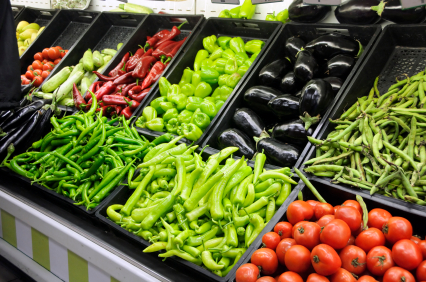
Proposed rule aims to reduce retailer fraud in nutrition program.
Each year, the Supplemental Nutrition Assistance Program (SNAP) helps around 45 million low-income Americans put food on the table. Nonetheless, some of these benefits—formerly known as food stamps—are falling into the hands of retailers engaging in fraudulent activities.
As part of its “ongoing effort to ensure integrity in the nation’s nutrition safety net,” the United States Department of Agriculture (USDA) has proposed a rule that would allow the Department to suspend immediately payments to retail stores that it suspects have “flagrantly” trafficked SNAP benefits. Trafficking—the exchange of SNAP benefits for cash or ineligible products—is a form of fraud.
Under the SNAP program, beneficiaries can purchase eligible food products at authorized stores using Electronic Benefits Transfer (EBT) debit cards. State agencies then make federally funded payments to SNAP-authorized retailers.
The Department expressed its hope that its proposed rule will further reduce SNAP fraud and ensure that benefits are used for their intended purposes. According to the USDA, the proposed rule is important to prevent retailers from appreciating large, short-term profits during pending investigations and to dissuade retailers from engaging in fraudulent activities. The USDA claims it has already cut the SNAP trafficking rate significantly over the last twenty years through “increased oversight and improvements in program management.”
The proposal would allow the USDA to suspend payments to a retailer that is facing trafficking charges. A retailer allegedly engaged in trafficking would no longer continue to receive payments for SNAP benefits, trafficked or otherwise, while it is under investigation.
Currently, when the USDA suspects a retailer is trafficking SNAP benefits, it cannot withhold unsettled program benefits until after it conducts a full investigation, gives the retailer an opportunity to respond to the charges, and disqualifies the retailer. According to the USDA, under the current system retailers might “take off with the trafficked benefits” or even continue to traffic SNAP benefits while the Department conducts its investigation.
In its proposal, the USDA noted that it would not provide the public with an exact definition of “flagrant” trafficking because it believes that withholding this information is necessary for maintaining investigative integrity and security. However, the USDA requested public comments on the criteria it should use to distinguish flagrant cases from “more routine trafficking cases.” Additionally, the USDA indicated that signs of flagrant trafficking might include a sudden and drastic increase in SNAP redemptions or in the number of SNAP households buying food at a particular store.
The proposed rule also contains certain procedural safeguards—the USDA’s Food and Nutrition Service (FNS) agency must consult the USDA’s Office of the Inspector General (OIG) on each case. The USDA cannot suspend payments unless both offices in the Department agree that the trafficking was flagrant.
To address a concern that suspending payments to suspected retailers before they are aware of and can respond to charges may not provide retailers with adequate notice, the Department indicated that it will advise retailers of the suspension provision when they apply to become authorized retailers. Moreover, as in the current process, retailers would have an opportunity to respond to the USDA letter notifying them of charges and the Department would consider this response before issuing any final decision.
The proposed rule might also inconvenience beneficiaries enrolled in SNAP. Because a suspended retailer would have to stop accepting SNAP benefits during a pending investigation, the rule could disrupt beneficiaries’ routine shopping habits and create difficulties in utilizing these benefits. Nevertheless, the USDA noted that neither current regulations nor the Food, Conservation, and Energy Act of 2008, which authorized the USDA to promulgate the proposed rule, allows for exceptions due to potential SNAP customer hardship.
The proposed rule, however, might not affect a large swath of beneficiaries. As the rule only addresses retailers that the Department suspects are engaging in flagrant trafficking, the current process would continue to apply to the “vast majority of firms suspected of trafficking.” Moreover, although some SNAP beneficiaries also traffic program benefits, the proposed rule only targets retailers who engage in trafficking.
The USDA is accepting public comments until April 23, 2013.



